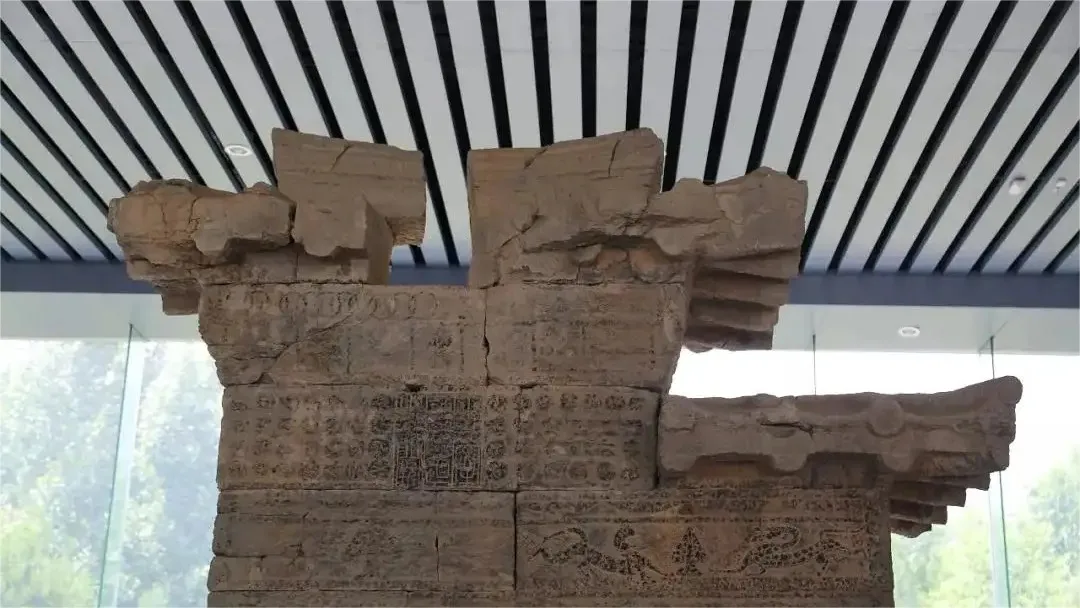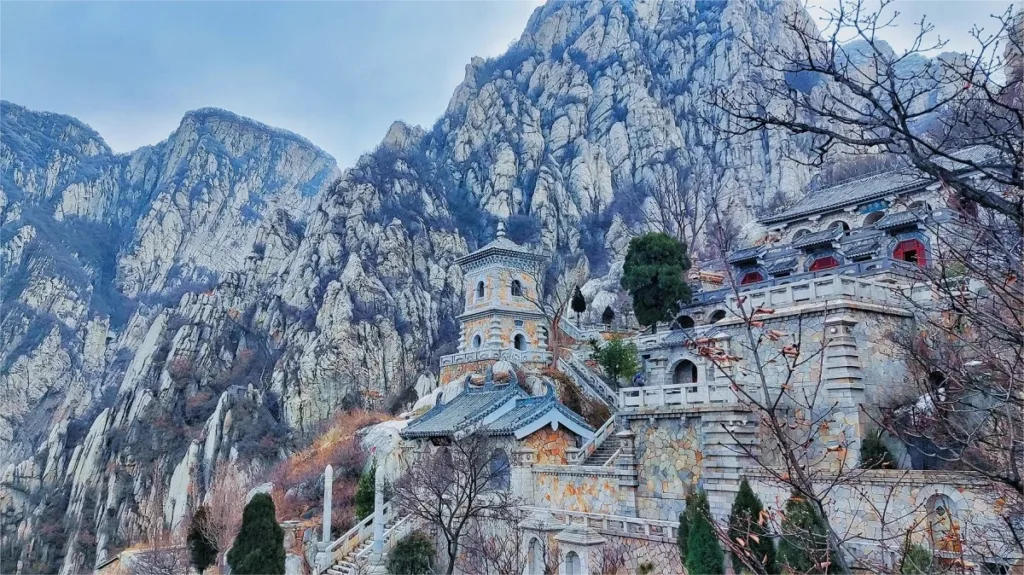The Shaoshi Que Gates (少室阙) are located at the eastern foot of Mount Shaoshi in Dengfeng City, Zhengzhou, Henan Province, China. They are the ceremonial gates leading to the Shaoshi Temple on Mount Shaoshi and are believed to have been built around the second year of the Yongguang era of Emperor An of Han (123 AD). Along with the Taishi Que and Qimu Que, they are collectively known as the “Three Gates of Mount Zhongyue.”
Constructed using blocks of gray-blue stone, the Shaoshi Que Gates consist of two gates, one to the east and one to the west. Both gates share a similar structure, comprising a base, a body, and a top. The eastern gate stands at a height of 3.37 meters, while the western gate is slightly taller at 3.75 meters, with a distance of 7.60 meters between them.
The northern face of the western gate features an inscription in seal script reading “Que of the Shaoshi Divine Way” carved into the central part of the three layers. The inscription on the gate is also in seal script, consisting of approximately 55 lines with four characters per line, although erosion has made it difficult to decipher.
The Shaoshi Que Gates are adorned with various carved images, including scenes of chariot travel, banquets, mythical creatures, hunting, and sporting events. Notably, the carving depicting horse performances is particularly outstanding. It showcases two spirited horses galloping, with one horse carrying a maiden with double bun hairstyles who is performing a handstand on its back, while the other horse has a woman with long sleeves fluttering in the wind, leaning backward naturally, demonstrating the thrilling acrobatics and skills of horse performances.
The Shaoshi Que Gates represent a traditional aspect of Chinese culture that dates back thousands of years: ancestor worship. This tradition is a fundamental concept and principle in Chinese kinship politics, family relations, ethical morals, and is exemplified in ancient Chinese ceremonial architectural practices.





